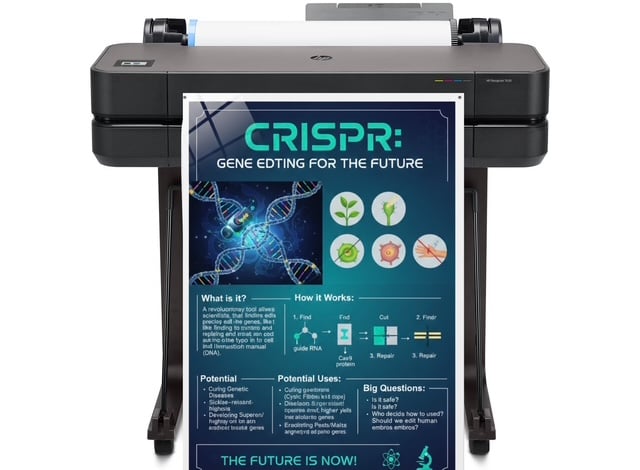
DISCOUNTED EDUCATION PRICING! CALL 1-877-891-8411. We Gladly Accept School Purchase Orders!

In the fast-evolving world of educational technology (EdTech), staying ahead isn’t just an advantage—it’s essential. As we navigate 2025, with AI-driven personalization, immersive VR classrooms, and data analytics reshaping how we teach and learn, educators, administrators, and tech enthusiasts need reliable voices to guide them. EdTech blogs are more than just news feeds; they’re treasure troves of practical tips, cutting-edge research, and inspiring stories that bridge theory and classroom reality.
This curated list of the top 10 EdTech blogs in 2025 draws from authoritative sources like Feedspot’s annual rankings, Detailed.com’s algorithmic analysis, and expert compilations from Brainscape and VHS Learning. We’ve prioritized blogs that consistently deliver actionable insights, foster community, and adapt to trends like ethical AI tools and use and hybrid learning models. Whether you’re a K-12 teacher experimenting with gamification or a higher ed leader exploring blockchain credentials, these blogs will ignite your innovation. Each entry includes a brief overview, why it stands out, and a fresh snippet from a 2025 post to give you a taste. Let’s dive in and elevate your EdTech game.
Edutopia, powered by the George Lucas Educational Foundation, is the gold standard for evidence-based EdTech strategies. It excels in blending pedagogy with tech, offering resources tagged by grade, subject, and tool—perfect for busy educators seeking quick wins. In 2025, its focus on inclusive AI tools and social-emotional learning integrations makes it indispensable. With millions of monthly readers, it’s not just a blog; it’s a movement for “what works” in education.
Why it’s top-ranked: Comprehensive video libraries and teacher-vetted tool reviews ensure relevance amid 2025’s EdTech boom.
Snippet from “AI-Powered Project-Based Learning: 5 Classroom Hacks” (March 2025): “Imagine students designing sustainable cities using AI simulations—Edutopia’s latest guide walks you through free tools like Teachable Machine to prototype ideas without coding. One teacher shared how this sparked 30% more engagement in urban planning units, turning abstract concepts into tangible prototypes. Start with ethical prompts to avoid bias, and watch collaboration soar.” (78 words)
EdSurge bridges the gap between EdTech startups and practitioners, delivering sharp journalism on funding trends, product launches, and policy shifts. Founded by education journalists, it covers PK-20 with sections for news, research, and jobs—ideal for spotting the next big thing like adaptive learning platforms in 2025.
Why it’s top-ranked: In-depth interviews with innovators provide insider perspectives, helping readers invest time wisely in tools.
Snippet from “The Rise of Micro-Credentials in Corporate Training: 2025 Outlook” (April 2025): “As hybrid work blurs lines between education and employment, platforms like Credly are issuing blockchain-verified badges for skills like prompt engineering. Our survey of 500 HR leaders shows 65% prioritizing these over degrees—educators, integrate them now to future-proof curricula. Case study: A community college boosted enrollment 22% via partnerships.” (72 words)
eSchool News is the daily pulse for K-12 tech leaders, focusing on district-level implementations, cybersecurity, and equity in digital access. Its no-fluff style delivers webinars, whitepapers, and news tailored to administrators tackling 2025’s challenges like AI ethics mandates.
Why it’s top-ranked: Strong emphasis on real-world case studies from U.S. schools, making it a go-to for scalable solutions.
Snippet from “The Paradox of Hispanic Heritage Month: Celebrating Heritage Means Honoring Students’ Languages” (October 2025): “Every year, Hispanic Heritage Month offers the United States a chance to honor the profound and varied contributions of Latino communities… Curriculum teams and administrators must center EL experiences in every adoption decision, using tools like Duolingo for Schools to embed bilingual tech seamlessly.” (62 words)
This gem from Mohammed Errejji provides bite-sized tutorials on apps, AI integrations, and mobile strategies for global teachers. Since 2010, it’s amassed 7,000+ posts on everything from Google Workspace hacks to VR field trips, emphasizing accessibility for under-resourced classrooms in 2025.
Why it’s top-ranked: Free printables and EFL-focused resources make it versatile for diverse audiences.
Snippet from “Top 10 AI Tools for Personalized Feedback in 2025” (February 2025): “Feedback loops are transforming with tools like Gradescope AI, which analyzes essays in seconds for targeted advice. In a trial with 200 teachers, response times dropped 40%, boosting student revisions. Pair with mobile apps for on-the-go grading—start simple with rubrics to build trust in automation.” (68 words)
A powerhouse for corporate and higher ed pros, eLearning Industry curates 1,000+ monthly articles on LMS platforms, gamification, and XR training. In 2025, its directory of 500+ vendors and event calendars position it as the hub for professional upskilling.
Why it’s top-ranked: Data-driven rankings and partner spotlights cut through hype, aiding ROI-focused decisions.
Snippet from “How VR is Revolutionizing Compliance Training in 2025” (May 2025): “Virtual reality simulations cut training costs by 75% while boosting retention to 90%, per Deloitte. Tools like Engage VR let learners practice scenarios safely—from OSHA protocols to DEI workshops. One Fortune 500 firm reported zero repeat incidents post-implementation. Integrate with LMS for seamless tracking.” (64 words)
Vicki Davis, a veteran educator and podcaster, shares heartfelt, tech-infused wisdom on her blog, blending stories with strategies for purposeful teaching. 2025 highlights include AI ethics for kids and podcasting workflows, drawing from her top-40 influencer status.
Why it’s top-ranked: Weekly 10-minute reads foster work-life balance for overwhelmed teachers.
Snippet from “Building AI Literacy in Elementary Classrooms: A 5-Step Plan” (January 2025): “Start with unplugged activities like ‘robot charades’ to demystify algorithms, then layer in tools like Code.org’s AI modules. My class’s ‘bias detectives’ project uncovered stereotypes in chatbots, sparking empathy discussions. Measure success via pre/post quizzes—results? 85% more confident creators.” (62 words)
Lisa Nielsen’s blog champions student-centered tech, from AI video generators to accessibility audits. In 2025, it spotlights Google tools for agency-building, urging systemic shifts over gadget chases—ideal for reformers.
Why it’s top-ranked: Ethical, inclusive lens on emerging tech, with prompts for immediate classroom trials.
Snippet from “Lights, Camera, Learning! Exploring Google Veo’s Potential in the Classroom” (September 2025): “Google Veo generates cinematic videos from text, turning student scripts into historical reenactments or science animations. Use prompts like ‘A day in ancient Rome through a child’s eyes’ for multimodal literacy. Ethical tip: Watermark outputs with SynthID. One teacher noted 50% deeper retention in lit units.” (78 words)
Richard Byrne’s no-cost resource haven offers tutorials on Google Earth voyages and Canva infographics. 2025 updates tackle free AI alternatives amid budget crunches, empowering resource-strapped districts.
Why it’s top-ranked: Immediate applicability—posts end with “try this tomorrow” steps.
Snippet from “Free AI Image Generators for Student Projects: 2025 Edition” (June 2025): “Ditch paid subs with Craiyon or Microsoft Designer—generate custom visuals for reports in seconds. In a geography unit, kids created ecosystem maps, enhancing visual literacy. Pro: Built-in filters for age-appropriate outputs. Con: Always fact-check for accuracy in educational use.” (58 words)
Jennifer Gonzalez’s podcast-blog hybrid demystifies EdTech with empathy, covering tools like Flipgrid for feedback loops. 2025’s AI ethics deep-dives and equity audits resonate with reflective practitioners.
Why it’s top-ranked: Storytelling approach makes complex topics approachable, with transcripts for accessibility.
Snippet from “6 EdTech Tools to Try in 2025: From AI Tutors to Interactive Decks” (January 2025): “SchoolAI’s chatbots handle routine queries, freeing teachers for deep dives—pilots show 25% time savings. Pair with Deck.Toys for gamified reviews. Equity note: Ensure device parity. My fave? NotebookLM for auto-summaries of dense texts.” (56 words)
KQED’s MindShift probes learning science through an EdTech lens, tackling brain hacks, bias in algorithms, and SEL apps. 2025 coverage includes policy impacts on digital divides, appealing to parents and policymakers alike.
Why it’s top-ranked: NPR-backed rigor with diverse voices, sparking cross-stakeholder dialogues.
Snippet from “Research, Curriculum and Grading: New Data Sheds Light on How Professors are Using AI” (August 2025): “New data reveals how professors are integrating AI into research, curriculum development, and grading processes… It highlights evolving teaching methods to address student needs through technology, examining AI’s role in education amid broader shifts in innovative learning practices.”
The top 10 EdTech blogs of 2025 are more than resources—they’re your gateway to shaping the future of education. From AI-driven classrooms to equitable tech solutions, these platforms empower educators to innovate with confidence. Subscribe, explore, and share your insights with their vibrant communities. Which blog inspires you most? Drop a comment and join the global movement to make learning boundless, inclusive, and transformative.